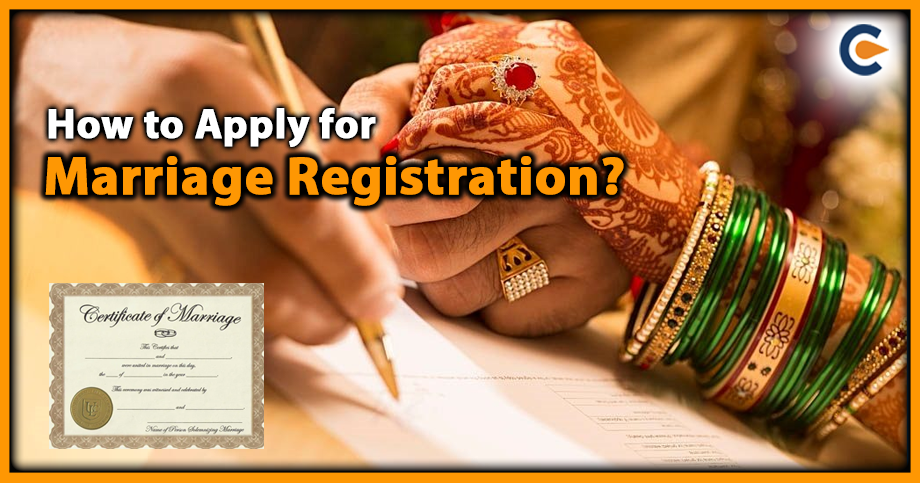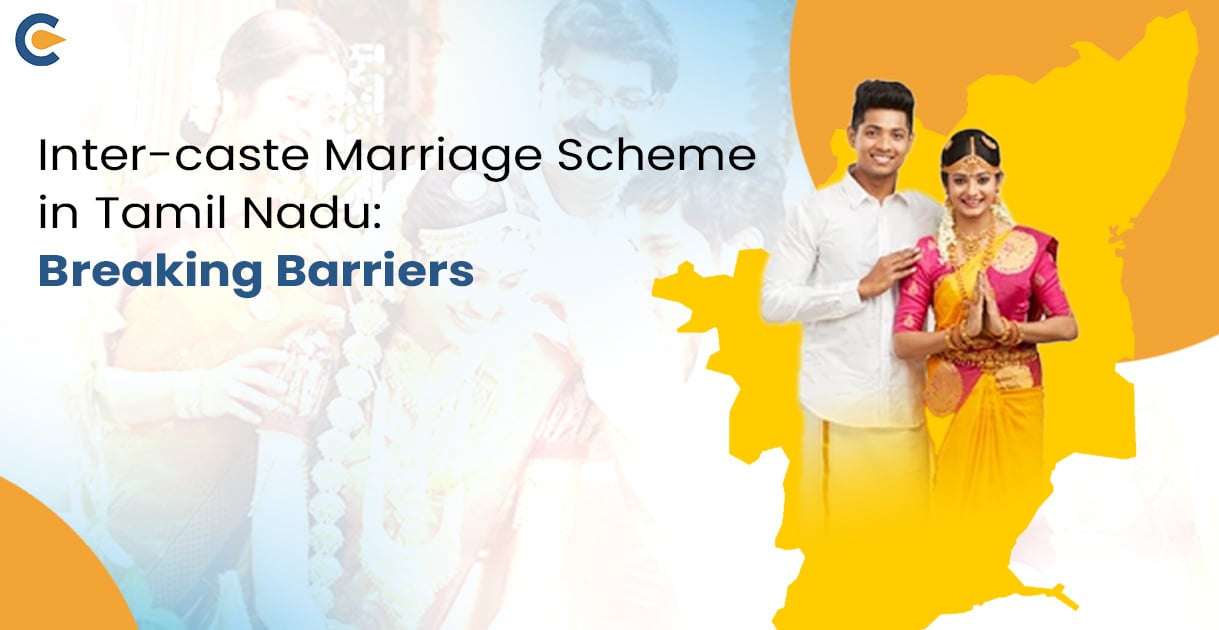Marriage registration is the process of officially recording a marriage with the government or relevant authorities. The registration process typically involves filling out forms and providing identification documents, such as birth certificates and passports. The purpose of marriage registration is to legally recognize the marriage and provide a record of it for future reference. Marriages in India are to be registered under the Hindu Marriage act, 1955 or the Special Marriage Act, 1954[1]. In the year 2006, the Honorable Supreme Court made it mandatory in India to get a marriage registered to legalize it.
One Can Apply Online As Well As Offline for the Marriage Registration
Online Registration for a Marriage Certificate
“Online registration of marriage” is the process of registering a marriage through an online platform. Depending on the state where the marriage took place, there may be differences in the specific steps and criteria for online marriage registration. However, usually speaking, the steps that go into online marriage registration are as follows:
- Verification of Eligibility: The couple must confirm that they are eligible to register their marriage in the state or jurisdiction in which they reside.
- Application Submission: To register their marriage, the pair must fill out an online application and include information about themselves, their union, and their contacts.
- Submission of Documents: The couple must upload scanned copies of all necessary documents, including their marriage license, proof of identification, and proof of residence.
- Payment of Fees: Depending on the state or jurisdiction, the couple must pay the necessary fees for marriage registration.
- Verification and Approval: If the relevant authorities find that the application and supporting papers are in order, the marriage registration will be approved.
- Marriage Certificate Issuance: A marriage certificate will be issued and sent to the couple via mail or email after the marriage registration is authorized.
It is essential to keep in mind that where the marriage occurred, the specific steps and requirements for online marriage registration may change. For more information, it is advisable to check the appropriate government website or speak with a legal expert.
Offline Registration for a Marriage Certificate
In India, marriage can be registered either under the Hindu Marriage Act, 1955 which is applicable to the Hindus, or under the Special Marriage Act, 1954 applicable to all citizens of India irrespective of their religion.
According to the Hindu Marriage Act, 1955
The Hindu Marriage Act applies to all Indian states and union territories. Many religions, including Hindus, Jains, Sikhs, and Buddhists, are covered by the Hindu Marriage Act, 1955. It also applies to people who have converted from a different religion to one of these religions.
Under this, you can apply to register an already solemnized marriage. You must apply at the office of a sub-registrar under whose jurisdiction the marriage was solemnized or under whose jurisdiction one of the partners have been residing for at least 6 months. A Hindu marriage can be solemnized according to the customs and rituals of either party.
The court ruled in the case of Margarit Palai v. Savita Palai that only Hindu marriages would be recognised by the Hindu Marriage Act of 1955. Hindu and Christian marriages cannot be legally recognised.
The Madras High Court believed that marriage registration should be made mandatory in the case of Nagavalli v. Saroja.
However, the court ruled in P. Remesh v. Secy, Kanapuram Grama Panchayat that registration must be completed within 15 days after the marriage’s solemnization.
According to the Special Marriage Act, 1954
The Special Marriage Act, 1954, specifies the procedure for both solemnization and registration of marriages in which either the husband or the wife are not Hindus, Buddhists, Jains, or Sikhs. The Act allows all Indian citizens, regardless of their religion, to have their marriages legally recognised.
Without a religious ceremony, the marriage might be consummated through the entire procedure. For people who are ineligible to register their marriage under the Hindu marriage legislation in India, the Special Marriage legislation, 1954 offers an alternative.
The spouse, who is applying under the Special marriage Act, has to give a 30 days notice to the sub-registrar under whose jurisdiction any of the partners reside. If the registrar does not receive an objection within the time period after posting a notice on the board for 30 days, the marriage is registered. The notice must be kept on file by the jurisdiction’s sub-registrar.
It is a legal provision that creates a unique kind of marriage through registration. The Act aims to legalize interreligious or inter-caste marriages, in contrast to customary arranged weddings that involve two families from the same caste or group.
Conclusion
A marriage certificate is a legal declaration that two individuals are wed. The Hindu Marriage Act of 1955 or the Special Marriage Act of 1954 must be used to record marriages in India. The Hindu Marriage Act only applies to Hindus, whereas the Special Marriage Act covers all Indian citizens, regardless of their religion. Technology advancement has made it possible to register a marriage online, eliminating the need for frequent visits to the marriage registrar’s office. After registering your marriage online, just follow a few easy procedures to obtain your marriage certificate with only one trip to the SDM office. Hence, it is very important for one to get his or her marriage registered so that there are no future conflicts in issues like inheritance, ownership of property, and other such issues that arise after marriage.
Read Our Article: How To Apply For Marriage Registration In India?











